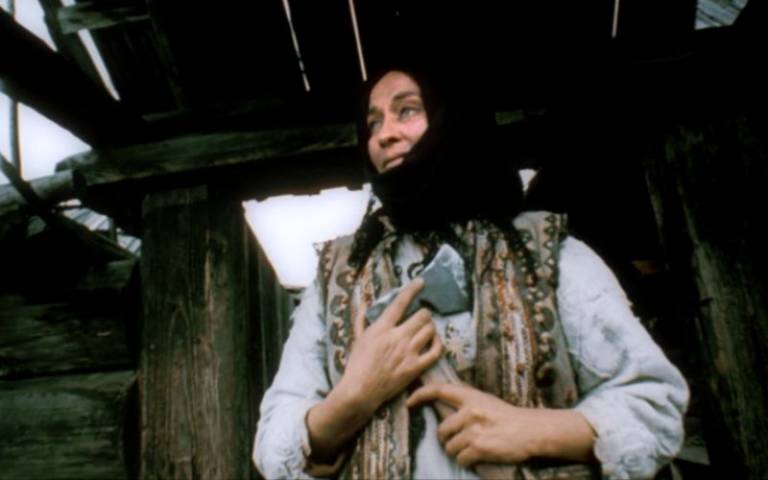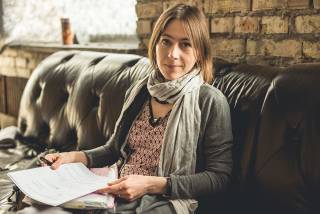Two Absent Funerals: Ukrainian Poetic Cinema of the 1960s
30 May 2022, 6:00 pm–7:30 pm

A SSEES Russian Cinema Research Group seminar with Olga Bryukhovetska, National University of Kyiv-Mohyla Academy
This event is free.
Event Information
Open to
- All
Availability
- Yes
Cost
- Free
Organiser
-
SSEES
The two most prominent films of Ukrainian poetic cinema of the 1960s – The Shadows of Forgotten Ancestors (1964) by Sergey Parajanov and Stone Cross (1968) by Leonid Osyka – were shot in the Carpathian Mountains in the West of Ukraine. Due to their attention to the culture of ethnic groups of the region, these multi-layered and highly complex texts were predominantly categorized as innovative ethnographic films that combine modernist aesthetics with a documentary quality. The ethnographic character of these films has been widely acknowledged for affirming the non-Soviet identity of Ukraine, and even criticized for its traditionalist flavour. In his book-length study of Ukrainian poetic cinema, Joshua First proposes a productive distinction between ethnographic and folkloric modes of representation: the former animates ethnic difference, while the latter performs its colonial domestication, which is typical of the Russo-centric Soviet vision of modernity. However, the indisputable ethnographic quality of The Shadows of Forgotten Ancestors and Stone Cross can be misleading and was even, perhaps, designed to be misleading. Employing shot-by-shot analysis of these films, this paper will discuss a deeper affective dimension, which touches the dark energies of damaged life. In Warped Mourning, Aleksander Etkind emphasizes the failed integration of the personal and the cultural memory of the victims of the Stalinist regime in Russia, which paved a way for denialism and revanchist ideology. The study of the work of mourning in the two most prominent films of Ukrainian poetic cinema of the 1960s shows how Ukrainian cultural integration of the collective trauma of Stalinism opened up a different path.
About the speaker

Image credit: Nina Alisova as a mother in The Shadows of Forgotten Ancestors, directed by Sergey Parajanov. Dovzhenko Studios, 1964. Screen-shot courtesy of the Dovzhenko Center (Ukraine).
Olga Bryukhovetska. Photo by Olesia Morgunets-Isayenko. Courtesy of the author.
 Close
Close

